Tripura, nestled in the northeastern part of India, is a land of diverse cultures and vibrant traditions. Its rich cultural tapestry is adorned with a plethora of festivals that reflect the essence of its people, their beliefs, and their way of life.
From religious ceremonies to harvest celebrations, the festivals of Tripura are a testimony to the state’s cultural heritage and unity in diversity.
1) Ganga Puja Festival
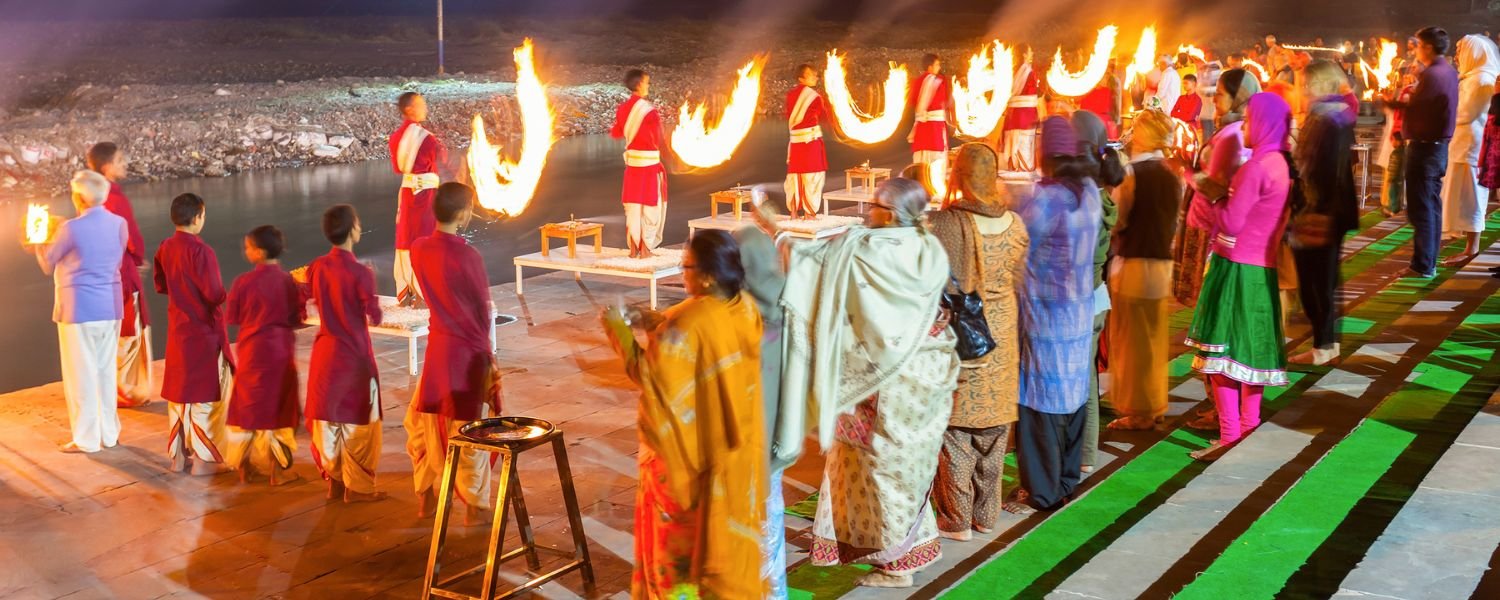
The Ganga Puja festival, also known as Ganga Sagar Mela, is a significant religious event in Tripura. It holds immense cultural importance as it symbolizes reverence for the sacred river Ganga, a deity in Hindu mythology.
The festival typically occurs during the auspicious period of Makar Sankranti when devotees gather at riverbanks, especially the banks of the Gomati River in Tripura, to perform rituals and take holy dips in the river.
The act of bathing in the Ganga is believed to cleanse one of sins and purify the soul.Devotees offer prayers, flowers, and lamps to the river, seeking blessings for prosperity and well-being.
The festival also includes various cultural activities such as traditional dances, music performances, and fairs, which add to the festive atmosphere.
Ganga Puja fosters a sense of community spirit as people from different walks of life come together to celebrate their shared faith and cultural heritage.
2) Garia Puja Festival
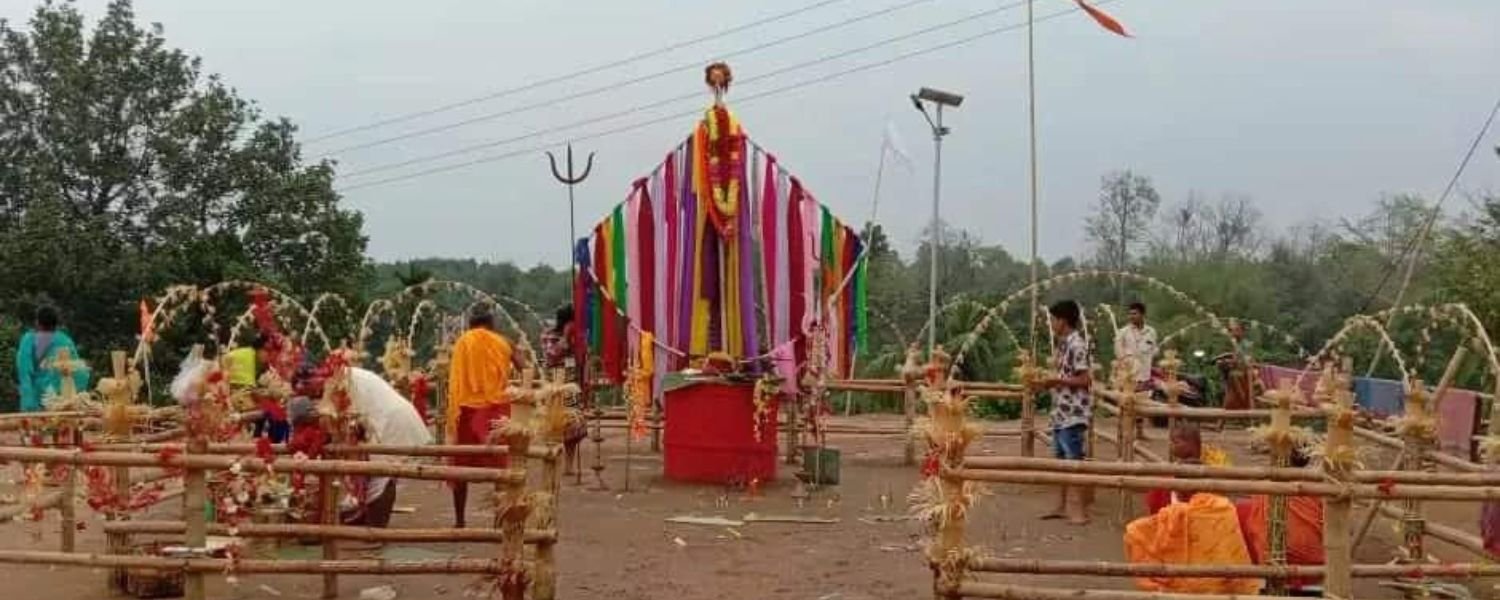
The Garia Puja festival is a traditional tribal festival celebrated with great enthusiasm in Tripura. It is dedicated to worshiping the deity Garia, believed to protect the villages from evil spirits and bring prosperity to the community.
The festival typically spans several days and involves elaborate rituals performed by tribal priests known as Ochai. These rituals include the sacrifice of animals, offering of fruits, flowers, and rice, and chanting of sacred hymns.
The festival also features colorful processions where devotees carry the idol of Garia adorned with flowers and traditional attire.
Traditional dances such as the Garia dance are performed during the festival, accompanied by rhythmic beats of drums and musical instruments.
Garia Puja strengthens social bonds within the community as people come together to participate in the festivities, share meals, and exchange greetings and gifts.
3) Kharchi Puja Festival
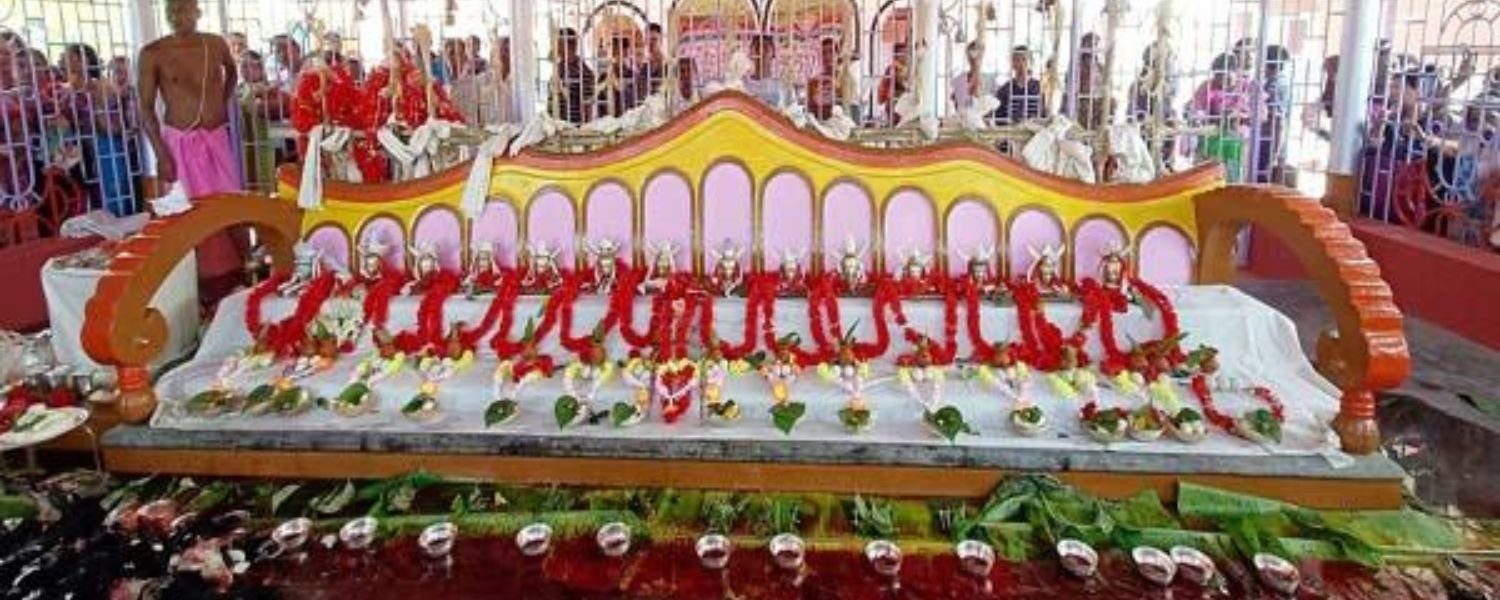
Kharchi Puja is one of the most revered festivals in Tripura, steeped in ancient traditions and cultural significance.
People celebrate it to honor Lord Kharchi, the deity of the Tripuri people, believing it brings peace, prosperity, and fertility to the land.
The festival lasts seven days and features various rituals and ceremonies at the Kharchi shrine in Old Agartala.
Each day is dedicated to one of the seven deities, with devotees offering prayers, fruits, and sacrificial animals to seek their blessings.
The highlight of the festival is the grand procession called Kharchi Puja, where the idols of the deities are carried in beautifully decorated palanquins accompanied by music and dance performances.
Kharchi Puja is not only a religious event but also a cultural extravaganza that showcases the rich heritage of Tripura and fosters a sense of unity and harmony among its people.
4) Ker Puja Festival
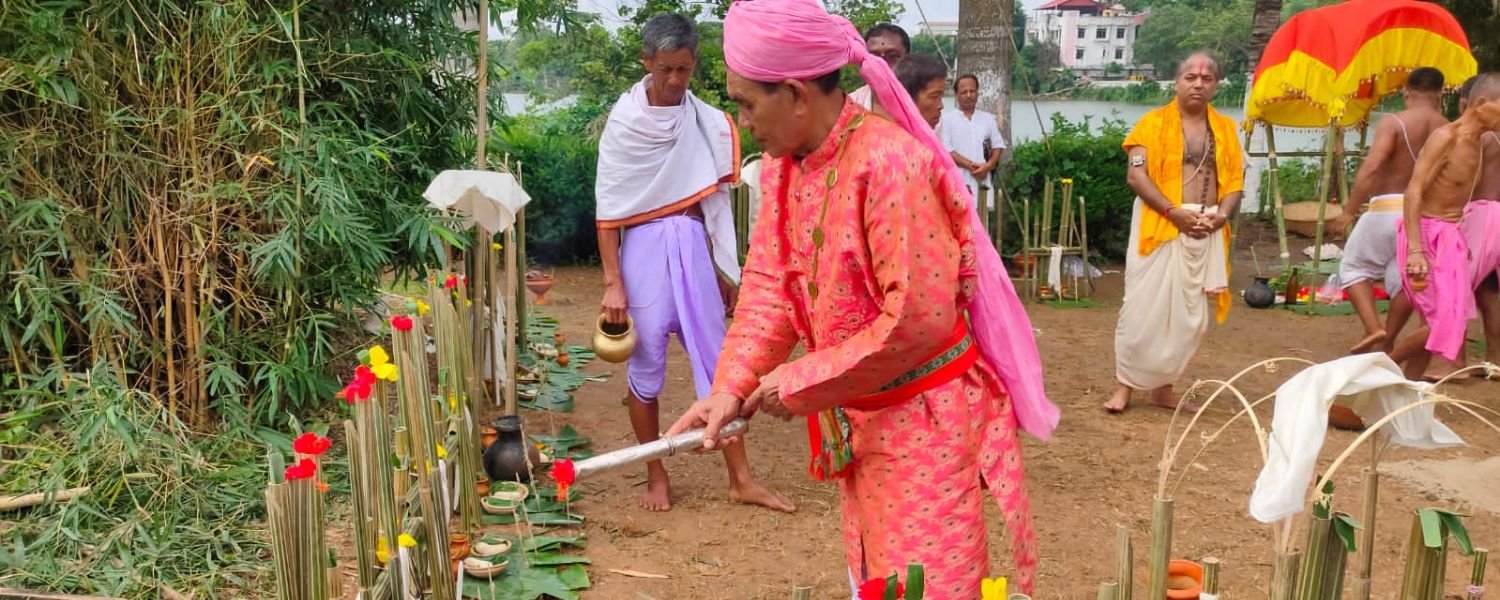
Ker Puja stands as a testimony to Tripura’s agrarian roots and the profound connection between its people and the land. Celebrated primarily by the Tripuri tribal community, Ker Puja is a harvest festival that marks the culmination of the agricultural season.
The festival is a vibrant celebration of gratitude towards the deities for a bountiful harvest and is characterized by elaborate rituals, folk songs, and traditional dances.
Before the festival commences, farmers perform rituals to appease the deities and seek their blessings for a fruitful harvest in the upcoming season.
On the day of Ker Puja, villagers gather in the fields adorned in colorful attire, carrying offerings of rice, fruits, and vegetables.
Ker Puja is not only a celebration of agricultural abundance but also a reaffirmation of Tripura’s cultural heritage and the resilience of its people.
5) Neelmahal Water Festival
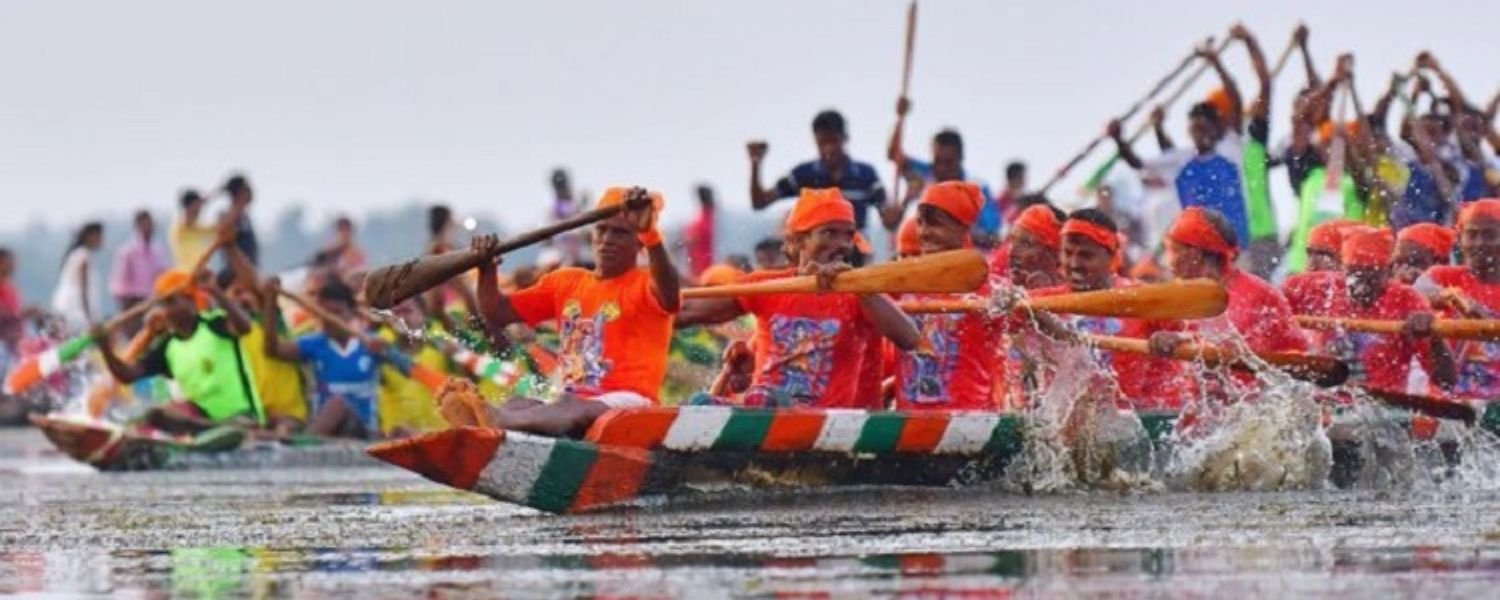
The Neelmahal Water Festival is a unique cultural extravaganza that highlights Tripura’s scenic beauty and rich cultural heritage.
Held at the iconic Neermahal Palace, situated amidst the tranquil waters of Rudrasagar Lake, the festival offers a mesmerizing blend of art, culture, and natural splendor.
The festival typically features a variety of activities including traditional boat races, cultural performances, folk dances, and music concerts.
Visitors can witness the vibrant colors of Tripura’s cultural mosaic through performances by local artists showcasing traditional dances like Hojagiri, Garia, and Lebang Boomani.
The festival also provides an opportunity for artisans to display their craftsmanship through exhibitions of handloom textiles, bamboo crafts, and tribal jewelry.
One of the highlights of the Neelmahal Water Festival is the illuminated boat procession where intricately decorated boats glide gracefully across the shimmering waters of Rudrasagar Lake, creating a magical spectacle.
The festival not only attracts tourists from far and wide but also serves as a platform for preserving and promoting Tripura’s cultural heritage.
6) Diwali Festival
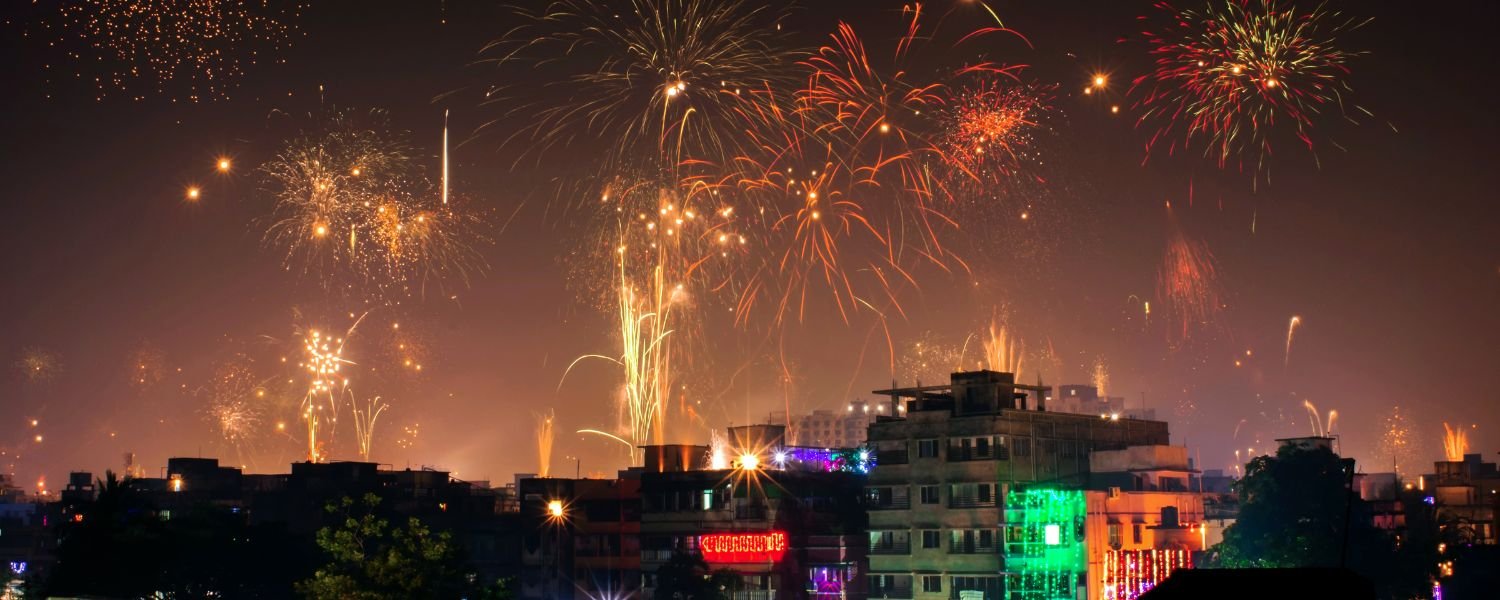
Diwali, the festival of lights, holds a special place in the hearts of the people of Tripura, transcending religious and cultural boundaries.
The festive spirit of Diwali also extends to markets and streets adorned with vibrant decorations, bustling with shoppers purchasing new clothes, sweets, and decorative items.
Community gatherings and cultural events add to the joyous atmosphere, fostering a sense of unity and togetherness among people of all faiths. Diwali in Tripura is not just a festival but a celebration of hope, happiness, and the triumph of righteousness.
7) Poush Sankranti Fair or Tirthamukh Mela
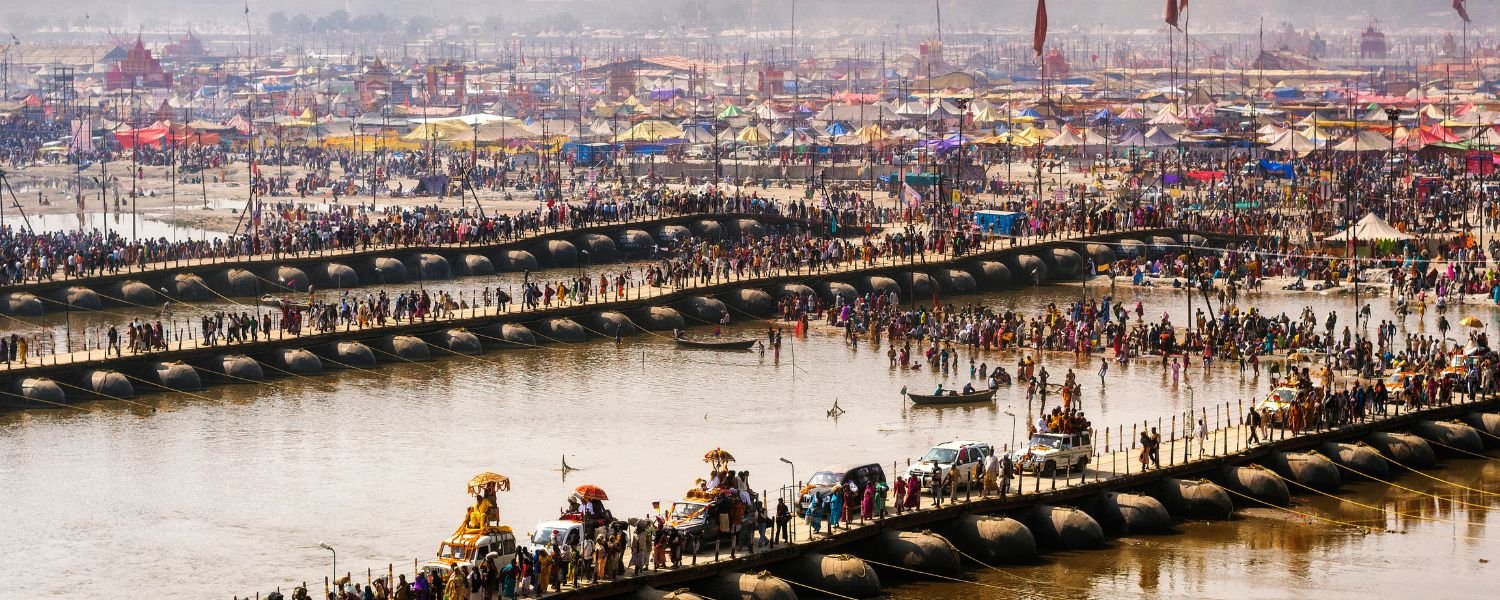
The Poush Sankranti Fair, also known as Tirthamukh Mela, is a vibrant celebration that marks the onset of the harvest season in Tripura.
Held during the month of Poush (December-January), the fair is a melting pot of cultural diversity, attracting people from various communities and backgrounds.
One of the main attractions of the fair is the traditional market where local artisans showcase their handicrafts, handloom textiles, and agricultural produce.
Visitors can indulge in mouthwatering delicacies, including traditional tribal dishes prepared using locally sourced ingredients.
Cultural performances such as folk dances, music recitals, and theater acts add to the festive ambiance, entertaining the crowds and celebrating Tripura’s rich cultural heritage.
The fair also serves as a platform for promoting tourism and showcasing the natural beauty of the region, with activities such as boat rides on the nearby rivers and guided tours to nearby attractions.
Poush Sankranti Fair is not only a celebration of the harvest but also a celebration of community spirit, where people come together to rejoice in the abundance of nature and forge lasting bonds of friendship and camaraderie.
8) Unakoti Festival or Ashokastami Festival
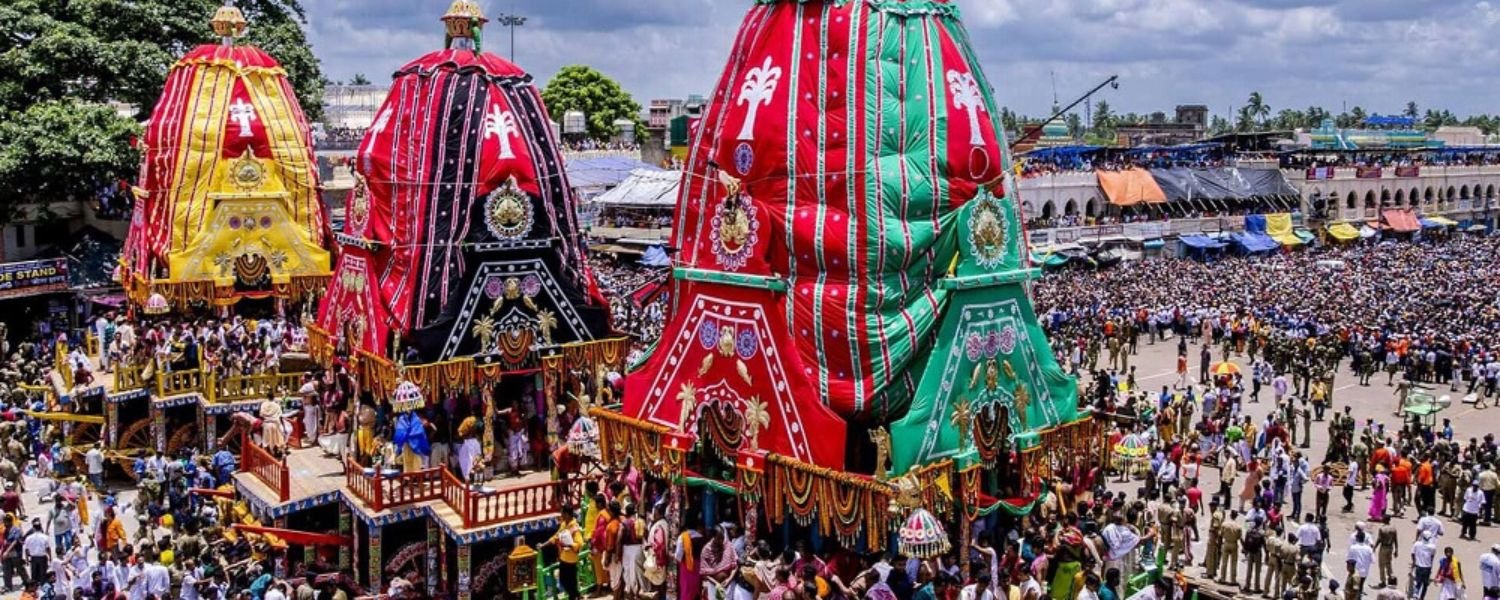
The Unakoti Festival, also known as the Ashokastami Festival, is a cultural extravaganza that pays homage to the ancient rock-cut sculptures of Unakoti Hills in Tripura.
The festival, held annually during the month of Ashokastami (March-April), attracts pilgrims, tourists, and art enthusiasts from far and wide. It is a celebration of art, culture, and spirituality, offering visitors a glimpse into the rich heritage of the region.
During the festival, the ancient sculptures of Unakoti Hills come to life as they are illuminated with colorful lights and adorned with flowers.
Pilgrims undertake a holy pilgrimage to the site, offering prayers and seeking blessings from the deities depicted in the rock carvings.
Cultural programs featuring traditional music, dance, and theater performances add to the festive ambiance, captivating the audience with their mesmerizing rhythms and vibrant costumes.
The festival also provides an opportunity for local artists to showcase their talent through exhibitions of paintings, sculptures, and handicrafts.
Unakoti Festival is not only a celebration of art and spirituality but also a celebration of Tripura’s rich cultural heritage and artistic legacy.
9) Pilak Archaeological And Tourism Festival
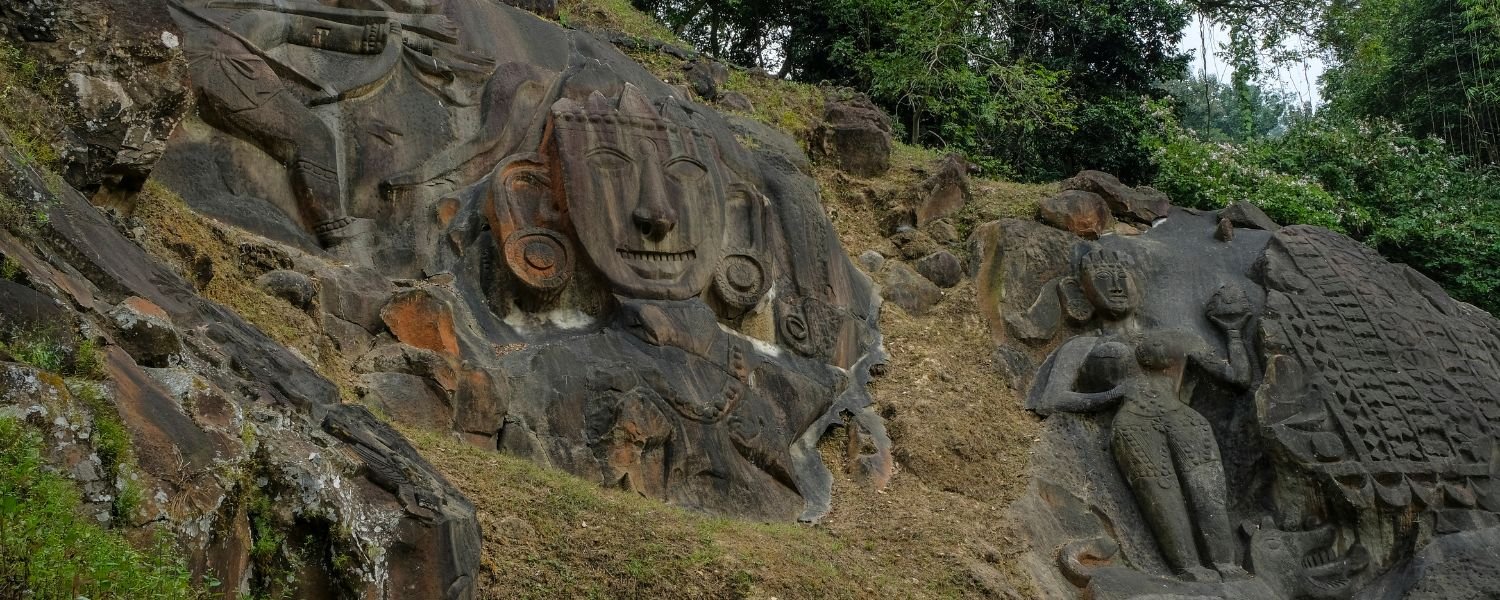
The Pilak Archaeological and Tourism Festival is a celebration of Tripura’s rich archaeological heritage and vibrant tourism industry.
Pilak, located in South Tripura district, is renowned for its ancient ruins and archaeological sites dating back to the 8th-12th centuries.
The festival, held annually, aims to promote awareness and appreciation of the region’s historical significance and cultural heritage.
Visitors to the festival can explore the various archaeological sites, including ancient temples, monoliths, and rock-cut sculptures, guided by experts and historians
Cultural programs featuring traditional music, dance, and theater performances offer visitors a glimpse into the cultural richness of Tripura.
The festival also includes activities such as heritage walks, nature trails, and adventure sports, allowing visitors to experience the natural beauty of the region firsthand.
Local communities actively participate in the festival, showcasing their traditional arts, crafts, and cuisine, further enriching the cultural experience for visitors.
Pilak Archaeological and Tourism Festival is not only a celebration of the past but also a celebration of the present and future of Tripura’s cultural and tourism landscape.
10) Buddha Jayanti Festival
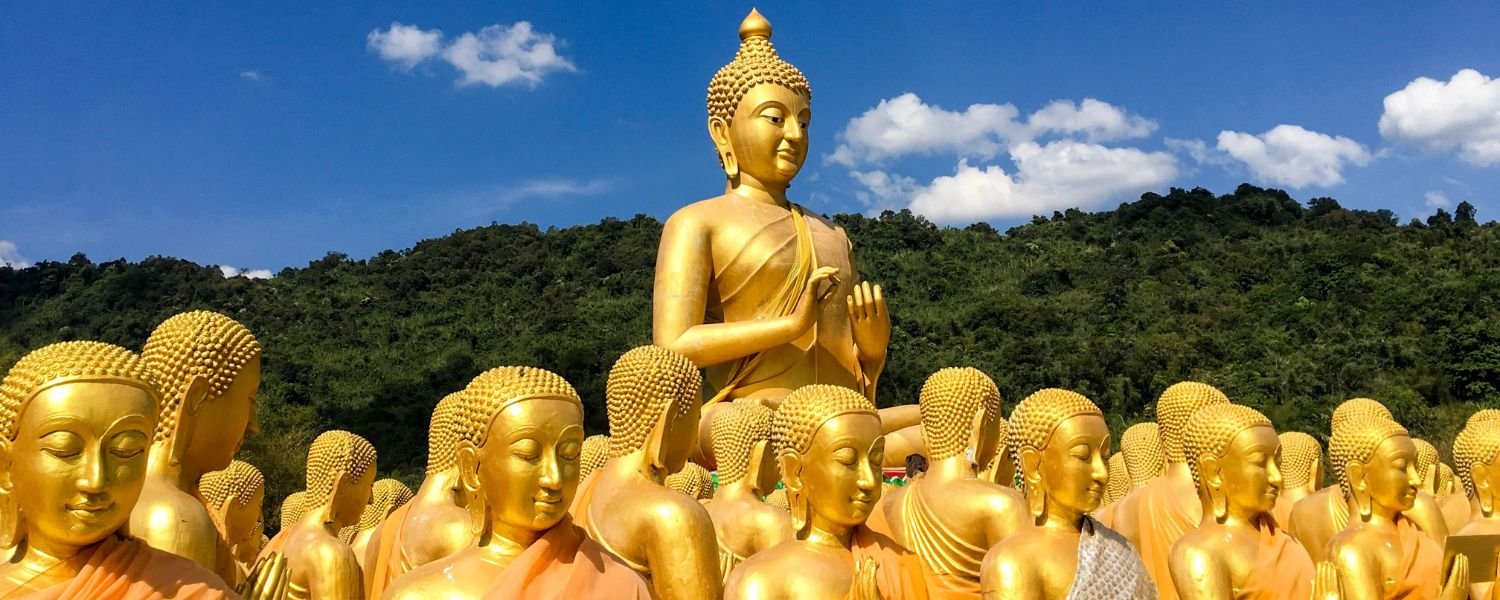
The Buddha Jayanti Festival holds a significant place in Tripura’s cultural calendar, commemorating the birth, enlightenment, and death of Lord Buddha.
Celebrated with reverence and devotion by the Buddhist community, the festival serves as a reminder of the teachings of peace, compassion, and enlightenment espoused by the Buddha.
During the festival, devotees gather at Buddhist monasteries and temples to offer prayers, chant scriptures, and engage in meditation practices.
The atmosphere is imbued with serenity and spirituality as devotees reflect on the life and teachings of the Buddha, striving to emulate his noble virtues in their own lives.
Organizers include community service activities such as almsgiving and blood donation drives as part of the festival, emphasizing the importance of compassion and selflessness.
Cultural programs showcasing Buddhist art, music, and dance add to the festive ambiance, attracting visitors from different parts of the country.
Buddha Jayanti Festival is not only a celebration of religious significance but also a celebration of universal values that transcend boundaries of religion and culture, fostering harmony and goodwill among people of all backgrounds.
For more Festival Related Blogs Subscribe Us!
Conclusion
In conclusion, the festivals of Tripura form a vibrant tapestry of cultural diversity and heritage, reflecting the rich traditions and customs of its people.
From religious ceremonies to harvest celebrations, each festival carries its own unique significance and symbolism, weaving together the fabric of Tripura’s cultural identity.
These festivals serve as a platform for fostering unity, harmony, and social cohesion among the diverse communities that call Tripura home.
As visitors immerse themselves in the colors, sounds, and flavors of these festivals, they gain a deeper appreciation for the cultural richness and vibrancy of Tripura.
Through the celebration of these festivals, Tripura reaffirms its commitment to preserving and promoting its cultural heritage for generations to come, ensuring that its traditions continue to thrive in the ever-changing landscape of the modern world.
FAQ
1. What are the traditional festivals of Tripura?
The traditional festivals of Tripura encompass indigenous celebrations rooted in ancient customs and beliefs, such as Kharchi Puja, Garia Puja, and Ker Puja.
2. What are the highlights of the festivals of Tripura?
The highlights of the festivals of Tripura include colorful processions, traditional rituals, cultural performances, folk dances, music concerts, and delicious local cuisine.
3. Are there any archaeological festivals in Tripura?
Yes, Tripura hosts the Pilak Archaeological and Tourism Festival, which celebrates the rich archaeological heritage of the region and promotes tourism to ancient sites.
4. How do festivals contribute to Tripura’s cultural heritage?
Festivals play a crucial role in preserving and promoting Tripura’s cultural heritage by showcasing traditional rituals, arts, crafts, music, dance, and cuisine, fostering a sense of pride and identity among its people.

